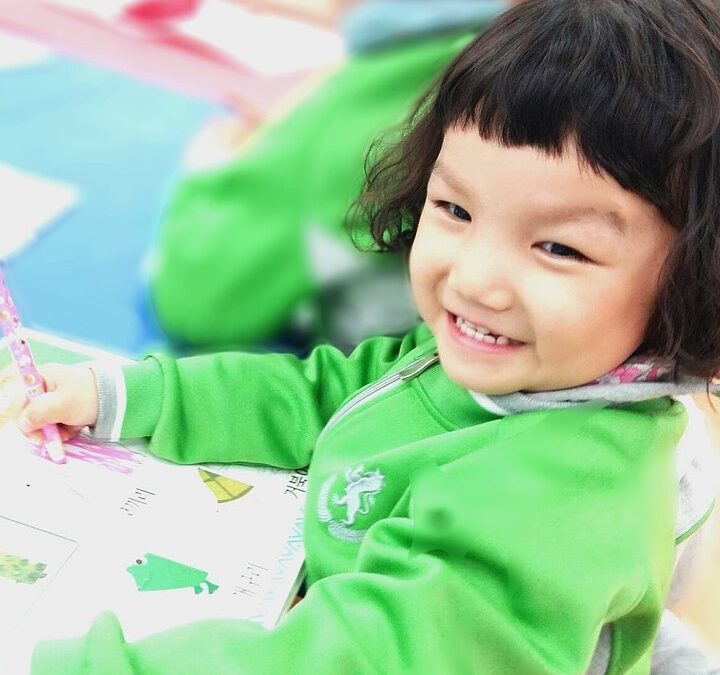The first day of kindergarten can be an exciting yet overwhelming experience for both children and parents alike. It marks a significant milestone in a child’s educational journey, setting the tone for their future school experiences. As caregivers, it is our responsibility to ensure a smooth transition for kindergartners. We must foster a positive and supportive environment that promotes their growth and development. In this post, we’ll examine effective strategies to help ease the transition into school, ensuring that every child embraces this new chapter with confidence and enthusiasm.
Establish a Familiarity with the School Environment
Before the first day of school, it is essential to introduce kindergartners to the school environment. Arrange visits to the school to familiarize them with classrooms, playgrounds, and common areas. This helps alleviate anxiety and builds a sense of comfort in their new surroundings. Consider organizing orientation programs or meet-and-greet sessions where children can interact with their teachers and peers in a relaxed setting.
Foster Positive Relationships
Building relationships is crucial for kindergartners as they enter a new social setting. Encourage children to participate in group activities, play dates, or buddy programs where they can bond with their future classmates. Establishing connections with peers and teachers early on enhances their sense of belonging and creates a supportive network within the school community.
Establish a Routine
A structured routine provides a sense of security and predictability for young children. Before school starts, gradually introduce a daily schedule that mimics the school day. Now that we’re getting closer to the start of the 2023-2024 school year, begin working to set consistent bedtimes and morning routines to ensure your children are prepared for what’s to come. Emphasize the importance of regular mealtimes, bathroom breaks, and even dedicated time for play or relaxation. A familiar routine at home can help children adapt to the school schedule more easily.
Encourage Independence
Promote independence by teaching kindergartners age-appropriate skills such as dressing themselves, opening lunch boxes, and tying shoelaces. These skills foster confidence and a sense of accomplishment, enabling children to navigate their school day more independently. Encourage them to take responsibility for their belongings and to express their needs or concerns to their teachers. Building self-reliance at an early age sets the foundation for lifelong learning and success.
Create a Positive Home-School Connection
Maintaining open communication between parents and teachers is vital for a child’s successful transition. Educators can share insights about the child’s progress, achievements, and challenges, while parents can provide valuable information about their child’s interests, strengths, and any concerns they may have. Regular parent-teacher meetings, newsletters, or digital platforms can facilitate this collaboration, fostering a supportive partnership that enhances the child’s overall educational experience.
Engage in Meaningful Play
Play is an integral part of a child’s development, and kindergarten provides an ideal setting for playful learning experiences. Encourage kindergartners to engage in creative activities, group play, and hands-on learning. Incorporate games, storytelling, and interactive lessons to make the learning process enjoyable and exciting. By infusing play into the curriculum, children develop social skills, problem-solving abilities, and a love for learning.
Help Your Kindergartners Thrive in School
Transitioning into kindergarten is a significant milestone that can shape a child’s attitude towards education for years to come. Following the ideas shared in this post can help you create an environment that fosters a smooth and positive transition for your kindergartners.
Parents and caregivers – If your little one will be going into kindergarten this year, don’t hesitate to reach out to your child’s teacher in advance. Introduce yourself, get to know them, and discuss any concerns you may have, including behavioral or mental needs your child might have. Being an advocate for your child’s mental, physical, and emotional wellness is essential. By establishing open communication, you can work together with the teacher to ensure your kindergartner’s needs are met, fostering a supportive and nurturing environment for their overall growth and development.
Remember, each child is unique, and some may require more time and support than others. With patience, empathy, and a collaborative effort between parents, educators, and the child, we can help kindergartners embark on this new journey with confidence, curiosity, and a genuine love for learning.
Hammond Psychology and Associates is the go-to resource for residents seeking psychological evaluations from a licensed psychologist in the Tampa Bay area. Click here to learn more about our Psychological Testing services in our Brandon location.

